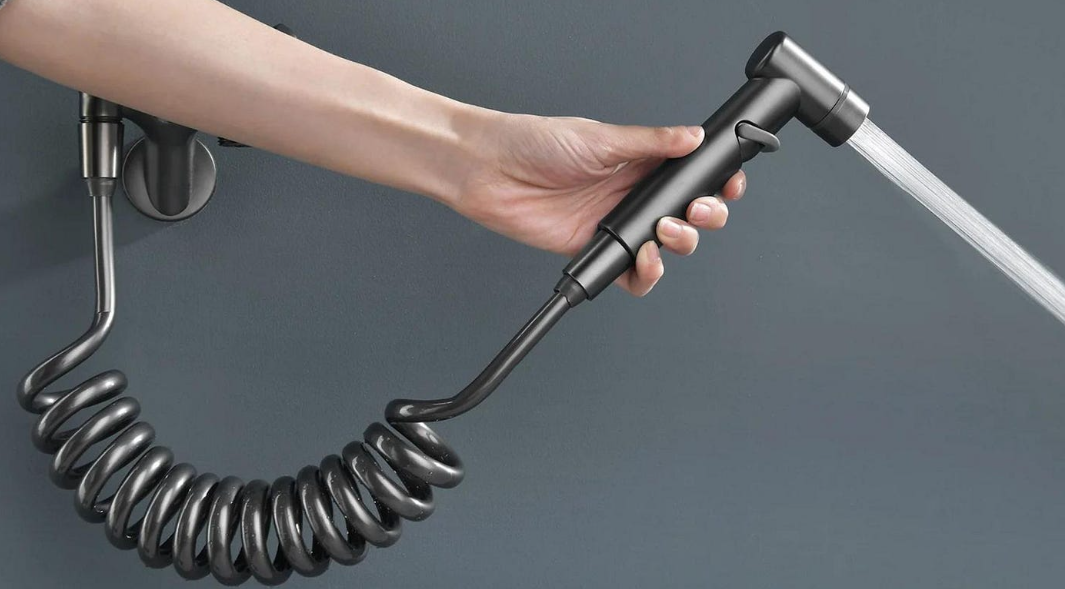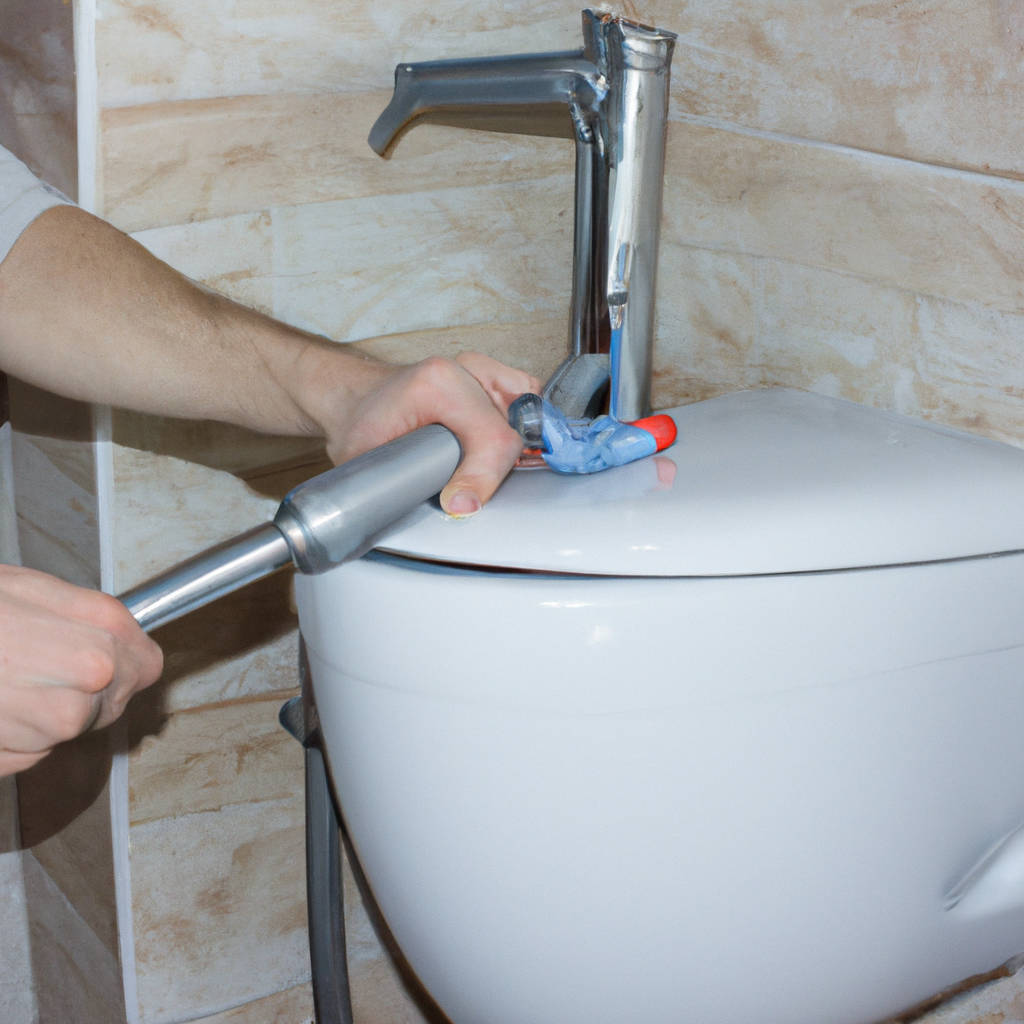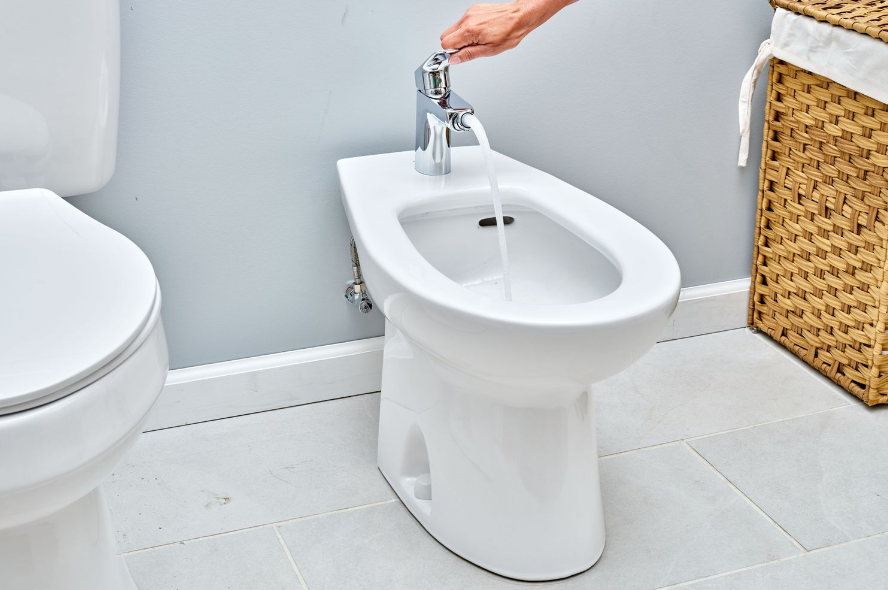A bidet usage guide is a helpful tool for those who are unfamiliar with this bathroom fixture. The bidet is a device used for personal hygiene after using the toilet. It is commonly found in many countries around the world, particularly in Europe and Asia. The bidet works by spraying water to cleanse the genital and anal areas, providing a more thorough clean than toilet paper alone.
To use a bidet, one should first use the toilet as usual and then move over to the bidet. Adjust the temperature and pressure of the water to your liking before turning on the spray. Use your hands to guide the water to the desired areas and make sure to thoroughly cleanse yourself before drying off with a towel or toilet paper. It is important to note that bidets are not meant to be used as a replacement for toilet paper, but rather as a supplement to improve hygiene. Additionally, bidets are not only for women but can also be used by men to maintain cleanliness. Overall, a bidet usage guide can help individuals feel more comfortable and confident in using this beneficial bathroom fixture.

Process
Process is the series of actions or steps taken in order to achieve a particular goal or outcome. It involves a systematic approach to completing tasks or solving problems in a methodical manner. Whether it be a manufacturing process, decision-making process, or creative process, each one requires careful planning and execution. It is important to follow a process in order to ensure efficiency, consistency, and accuracy in the results. A well-defined process can help streamline operations, improve productivity, and minimize errors. It provides a roadmap for individuals or organizations to follow in order to achieve success.
However, not all processes are created equal. Some processes may be outdated, inefficient, or ineffective in achieving the desired outcome. In these cases, it may be necessary to reevaluate and revise the process in order to improve results. Additionally, external factors such as changes in technology, market conditions, or regulations may also necessitate changes to the process. Flexibility and adaptability are key components of a successful process.
By continuously evaluating and refining processes, individuals and organizations can stay competitive and achieve their goals more effectively. In conclusion, process is a fundamental aspect of achieving success in any endeavor. It provides structure, guidance, and direction in completing tasks and solving problems. By following a well-defined process, individuals and organizations can improve efficiency, consistency, and accuracy in their operations.
Installing the Bidet
Installing a bidet in your home can be a great way to improve personal hygiene and reduce the amount of toilet paper used. There are many different types of bidets available, including standalone units and attachments that can be added to an existing toilet. Before installing a bidet, it is important to carefully read the instructions and ensure that you have all the necessary tools and materials. In general, the installation process involves turning off the water supply, removing the existing toilet seat, and attaching the bidet unit or attachment according to the manufacturer’s guidelines.
It is also important to ensure that the bidet is securely attached and that there are no leaks once the water supply is turned back on. Some bidet models may also require additional electrical connections, so it is important to follow the manufacturer’s instructions carefully. Overall, installing a bidet can be a relatively simple and straightforward process that can greatly improve personal hygiene and comfort.

Personal Hygiene
Personal hygiene is an essential aspect of daily life that involves taking care of one’s body to maintain cleanliness and prevent the spread of germs and disease. It includes practices such as bathing regularly, brushing teeth, washing hands, and wearing clean clothes. By practicing good personal hygiene, individuals can protect themselves and others from illnesses and infections. It also contributes to overall health and well-being by promoting physical and mental wellness. Poor personal hygiene can lead to unpleasant odors, skin infections, and other health issues. It is important for individuals to establish a routine for personal hygiene and make it a priority in their daily lives.
This can be achieved through simple habits such as showering daily, washing hands before eating or preparing food, and brushing teeth twice a day. Additionally, regular grooming practices such as trimming nails, washing hair, and wearing clean clothes can help individuals feel confident and presentable. Overall, personal hygiene is a fundamental aspect of self-care that should not be overlooked. By maintaining good personal hygiene, individuals can protect themselves and others from illness, feel more comfortable and confident in their own skin, and promote a healthier lifestyle. It is important for individuals to take responsibility for their own hygiene and make it a priority in their daily routine.
Subsequent Steps
After an action has been taken, it is important to consider the subsequent steps that need to be taken in order to address any potential consequences or further developments. These subsequent steps could involve evaluating the impact of the initial action, determining if any adjustments or modifications are necessary, and implementing a plan to address any issues that may arise. It is crucial to be proactive and thorough in considering these subsequent steps in order to ensure that the situation is handled effectively and responsibly.
By carefully considering and planning for these subsequent steps, individuals can better navigate through any challenges or uncertainties that may arise as a result of their actions. Additionally, taking the time to thoughtfully consider and plan for subsequent steps can help to mitigate potential risks and prevent further complications from arising. Overall, paying attention to subsequent steps is a key aspect of decision-making and problem-solving, as it allows individuals to anticipate and address any potential consequences or issues that may arise in the aftermath of their actions. By being mindful and strategic in considering subsequent steps, individuals can better navigate through complex situations and ensure that they are able to effectively address any challenges that may arise.

Additional Tips
Additional tips can help individuals navigate complex situations more effectively. One tip is to always research and educate oneself on the topic at hand. Knowledge is power, and being well-informed can help individuals make more informed decisions. Another tip is to seek advice from trusted sources, such as mentors or experts in the field. These individuals can provide valuable insights and guidance that can help individuals make better choices. It is also important to consider the potential consequences of actions before taking them.
Thinking through the potential outcomes can help individuals avoid making impulsive decisions that they may later regret. Additionally, seeking feedback from others can provide valuable perspectives that individuals may not have considered on their own. Finally, practicing mindfulness and self-awareness can help individuals tune into their own values and beliefs, allowing them to make decisions that align with their personal principles. By following these additional tips, individuals can navigate complex situations with more confidence and clarity.
Environmental Benefits
Protecting the environment has numerous benefits that go beyond just following regulations. When we take steps to reduce our carbon footprint and minimize waste, we are helping to preserve the natural world for future generations. By conserving resources and reducing pollution, we can help to mitigate the effects of climate change and protect vulnerable ecosystems. Additionally, when we prioritize sustainability and eco-friendly practices, we are promoting the health and well-being of all living things on Earth.
From clean air and water to thriving wildlife populations, the environmental benefits of taking care of our planet are vast and far-reaching. By making conscious choices in our daily lives, such as using reusable items, reducing energy consumption, and supporting green businesses, we can make a positive impact on the world around us. Ultimately, the environmental benefits of our actions are not just about following rules, but about creating a better future for ourselves and for generations to come. We all have a responsibility to protect and preserve the environment, and by doing so, we can ensure a healthier and more sustainable world for all.
